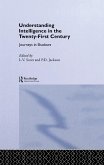Polly A. Mohs
Military Intelligence and the Arab Revolt (eBook, ePUB)
The First Modern Intelligence War
47,95 €
47,95 €
inkl. MwSt.
Sofort per Download lieferbar

24 °P sammeln
47,95 €
Als Download kaufen

47,95 €
inkl. MwSt.
Sofort per Download lieferbar

24 °P sammeln
Jetzt verschenken
Alle Infos zum eBook verschenken
47,95 €
inkl. MwSt.
Sofort per Download lieferbar
Alle Infos zum eBook verschenken

24 °P sammeln
Polly A. Mohs
Military Intelligence and the Arab Revolt (eBook, ePUB)
The First Modern Intelligence War
- Format: ePub
- Merkliste
- Auf die Merkliste
- Bewerten Bewerten
- Teilen
- Produkt teilen
- Produkterinnerung
- Produkterinnerung

Bitte loggen Sie sich zunächst in Ihr Kundenkonto ein oder registrieren Sie sich bei
bücher.de, um das eBook-Abo tolino select nutzen zu können.
Hier können Sie sich einloggen
Hier können Sie sich einloggen
Sie sind bereits eingeloggt. Klicken Sie auf 2. tolino select Abo, um fortzufahren.

Bitte loggen Sie sich zunächst in Ihr Kundenkonto ein oder registrieren Sie sich bei bücher.de, um das eBook-Abo tolino select nutzen zu können.
This book examines the use and exploitation of intelligence in formulating Britain's strategy for the Arab Revolt during the First World War. It also presents a radical re-examination of the achievements of T.E. Lawrence (Lawrence of Arabia) as an intelligence officer and guerrilla leader.
- Geräte: eReader
- mit Kopierschutz
- eBook Hilfe
- Größe: 0.66MB
Andere Kunden interessierten sich auch für
![Military Intelligence and the Arab Revolt (eBook, PDF) Military Intelligence and the Arab Revolt (eBook, PDF)]() Polly A. MohsMilitary Intelligence and the Arab Revolt (eBook, PDF)47,95 €
Polly A. MohsMilitary Intelligence and the Arab Revolt (eBook, PDF)47,95 €![An International History of the Cuban Missile Crisis (eBook, ePUB) An International History of the Cuban Missile Crisis (eBook, ePUB)]() An International History of the Cuban Missile Crisis (eBook, ePUB)47,95 €
An International History of the Cuban Missile Crisis (eBook, ePUB)47,95 €![The Future of Intelligence (eBook, ePUB) The Future of Intelligence (eBook, ePUB)]() The Future of Intelligence (eBook, ePUB)50,95 €
The Future of Intelligence (eBook, ePUB)50,95 €![East German Foreign Intelligence (eBook, ePUB) East German Foreign Intelligence (eBook, ePUB)]() East German Foreign Intelligence (eBook, ePUB)46,95 €
East German Foreign Intelligence (eBook, ePUB)46,95 €![Russian Military Intelligence in the War with Japan, 1904-05 (eBook, ePUB) Russian Military Intelligence in the War with Japan, 1904-05 (eBook, ePUB)]() Evgeny SergeevRussian Military Intelligence in the War with Japan, 1904-05 (eBook, ePUB)47,95 €
Evgeny SergeevRussian Military Intelligence in the War with Japan, 1904-05 (eBook, ePUB)47,95 €![MI6 and the Machinery of Spying (eBook, ePUB) MI6 and the Machinery of Spying (eBook, ePUB)]() Philip DaviesMI6 and the Machinery of Spying (eBook, ePUB)49,95 €
Philip DaviesMI6 and the Machinery of Spying (eBook, ePUB)49,95 €![Understanding Intelligence in the Twenty-First Century (eBook, ePUB) Understanding Intelligence in the Twenty-First Century (eBook, ePUB)]() Understanding Intelligence in the Twenty-First Century (eBook, ePUB)52,95 €
Understanding Intelligence in the Twenty-First Century (eBook, ePUB)52,95 €-
-
-
This book examines the use and exploitation of intelligence in formulating Britain's strategy for the Arab Revolt during the First World War. It also presents a radical re-examination of the achievements of T.E. Lawrence (Lawrence of Arabia) as an intelligence officer and guerrilla leader.
Dieser Download kann aus rechtlichen Gründen nur mit Rechnungsadresse in A, B, BG, CY, CZ, D, DK, EW, E, FIN, F, GR, HR, H, IRL, I, LT, L, LR, M, NL, PL, P, R, S, SLO, SK ausgeliefert werden.
Produktdetails
- Produktdetails
- Verlag: Taylor & Francis eBooks
- Seitenzahl: 272
- Erscheinungstermin: 5. April 2010
- Englisch
- ISBN-13: 9781134192533
- Artikelnr.: 42669551
- Verlag: Taylor & Francis eBooks
- Seitenzahl: 272
- Erscheinungstermin: 5. April 2010
- Englisch
- ISBN-13: 9781134192533
- Artikelnr.: 42669551
- Herstellerkennzeichnung Die Herstellerinformationen sind derzeit nicht verfügbar.
Polly A. Mohs is an historian and holds a Phd from the University of Cambridge.
Introduction. Legacies of the First World War. Intelligence: Suspended
Potential. Progress to the East. The Arab Bureau and British Policy 1.
Setting the Scene: British Intelligence and an Arab Insurrection, 1913-15
1.1 British Egypt: Redefining Strategic Security 1.2 Schemes for
Subversion: Arab Opportunities and British Ambivalence 1.3 Political
Negotiations 1.4 The Foreign Office and the Sykes-Picot Agreement 1.5 The
Creation of the Arab Bureau 2. The Outbreak of the Arab Revolt,
May-November 1916 2.1 The Sherif of Mecca Launches Uprising 2.2
Complications for British Support 2.3 Debating Control of the Hejaz
Campaign 2.4 The Hejaz Uprising: A Precedent for Syria? 3. Arriving at a
Doctrine of Guerrilla Warfare, June-October 1916 3.1 The Arab Bureau and
Evaluations of the Arab Forces 3.2 Divided Islam and a Military Stalemate
3.3 Crisis at Rabegh: Debate Over an Immobile Brigade 3.4 A 'Corner Turned'
for the Arab Revolt, and McMahon 3.5 Lawrence's Mission: Advancing a
Strategy of Guerrilla Warfare 4. Intelligence on Trial: The Rabegh Crisis,
November 1916-January 1917 4.1 First Alarm at Rabegh: Intelligence Wanted
4.2 The Military Debate Over Reinforcements 4.3 Intelligence and the
Strategic Detachment from Medina 4.4 The Shield of Rabegh Collapses: The
Turkish Counter-Attack, December 1916 4.5 Intelligence and the Gainsaying
of Wingate 5. Reorientation: The Arab Revolt Shifts North, January-April
1917 5.1 Wejh: Filling the Strategy Vacuum 5.2 Regular Support for an
Irregular Campaign 5.3 Imint and Turkish Redeployment to the Railway 5.4
Tribal Politics and a Northern Migration 5.5 Sigint and a Vanished Option
6. An Unauthorized Policy Triumph: Intelligence and Aqaba, February-July
1917 6.1 Destination: Medina, Jauf or Aqaba? 6.2 Lawrence's Epiphany on
Medina 6.3 Another 'Revolt': The Sykes-Picot Stratagem Stumbles 6.4
Intelligence Assessments: Medina Fades to Syria 6.5 The Best Laid Plans:
Political and Military Intelligence on Aqaba 6.6 Aftermath: Intelligence
Revelations. Conclusion. Theatre Challenges. Regional Expertise: The Arab
Bureau. Lessons: The Lawrence Conundrum
Potential. Progress to the East. The Arab Bureau and British Policy 1.
Setting the Scene: British Intelligence and an Arab Insurrection, 1913-15
1.1 British Egypt: Redefining Strategic Security 1.2 Schemes for
Subversion: Arab Opportunities and British Ambivalence 1.3 Political
Negotiations 1.4 The Foreign Office and the Sykes-Picot Agreement 1.5 The
Creation of the Arab Bureau 2. The Outbreak of the Arab Revolt,
May-November 1916 2.1 The Sherif of Mecca Launches Uprising 2.2
Complications for British Support 2.3 Debating Control of the Hejaz
Campaign 2.4 The Hejaz Uprising: A Precedent for Syria? 3. Arriving at a
Doctrine of Guerrilla Warfare, June-October 1916 3.1 The Arab Bureau and
Evaluations of the Arab Forces 3.2 Divided Islam and a Military Stalemate
3.3 Crisis at Rabegh: Debate Over an Immobile Brigade 3.4 A 'Corner Turned'
for the Arab Revolt, and McMahon 3.5 Lawrence's Mission: Advancing a
Strategy of Guerrilla Warfare 4. Intelligence on Trial: The Rabegh Crisis,
November 1916-January 1917 4.1 First Alarm at Rabegh: Intelligence Wanted
4.2 The Military Debate Over Reinforcements 4.3 Intelligence and the
Strategic Detachment from Medina 4.4 The Shield of Rabegh Collapses: The
Turkish Counter-Attack, December 1916 4.5 Intelligence and the Gainsaying
of Wingate 5. Reorientation: The Arab Revolt Shifts North, January-April
1917 5.1 Wejh: Filling the Strategy Vacuum 5.2 Regular Support for an
Irregular Campaign 5.3 Imint and Turkish Redeployment to the Railway 5.4
Tribal Politics and a Northern Migration 5.5 Sigint and a Vanished Option
6. An Unauthorized Policy Triumph: Intelligence and Aqaba, February-July
1917 6.1 Destination: Medina, Jauf or Aqaba? 6.2 Lawrence's Epiphany on
Medina 6.3 Another 'Revolt': The Sykes-Picot Stratagem Stumbles 6.4
Intelligence Assessments: Medina Fades to Syria 6.5 The Best Laid Plans:
Political and Military Intelligence on Aqaba 6.6 Aftermath: Intelligence
Revelations. Conclusion. Theatre Challenges. Regional Expertise: The Arab
Bureau. Lessons: The Lawrence Conundrum
Introduction. Legacies of the First World War. Intelligence: Suspended
Potential. Progress to the East. The Arab Bureau and British Policy 1.
Setting the Scene: British Intelligence and an Arab Insurrection, 1913-15
1.1 British Egypt: Redefining Strategic Security 1.2 Schemes for
Subversion: Arab Opportunities and British Ambivalence 1.3 Political
Negotiations 1.4 The Foreign Office and the Sykes-Picot Agreement 1.5 The
Creation of the Arab Bureau 2. The Outbreak of the Arab Revolt,
May-November 1916 2.1 The Sherif of Mecca Launches Uprising 2.2
Complications for British Support 2.3 Debating Control of the Hejaz
Campaign 2.4 The Hejaz Uprising: A Precedent for Syria? 3. Arriving at a
Doctrine of Guerrilla Warfare, June-October 1916 3.1 The Arab Bureau and
Evaluations of the Arab Forces 3.2 Divided Islam and a Military Stalemate
3.3 Crisis at Rabegh: Debate Over an Immobile Brigade 3.4 A 'Corner Turned'
for the Arab Revolt, and McMahon 3.5 Lawrence's Mission: Advancing a
Strategy of Guerrilla Warfare 4. Intelligence on Trial: The Rabegh Crisis,
November 1916-January 1917 4.1 First Alarm at Rabegh: Intelligence Wanted
4.2 The Military Debate Over Reinforcements 4.3 Intelligence and the
Strategic Detachment from Medina 4.4 The Shield of Rabegh Collapses: The
Turkish Counter-Attack, December 1916 4.5 Intelligence and the Gainsaying
of Wingate 5. Reorientation: The Arab Revolt Shifts North, January-April
1917 5.1 Wejh: Filling the Strategy Vacuum 5.2 Regular Support for an
Irregular Campaign 5.3 Imint and Turkish Redeployment to the Railway 5.4
Tribal Politics and a Northern Migration 5.5 Sigint and a Vanished Option
6. An Unauthorized Policy Triumph: Intelligence and Aqaba, February-July
1917 6.1 Destination: Medina, Jauf or Aqaba? 6.2 Lawrence's Epiphany on
Medina 6.3 Another 'Revolt': The Sykes-Picot Stratagem Stumbles 6.4
Intelligence Assessments: Medina Fades to Syria 6.5 The Best Laid Plans:
Political and Military Intelligence on Aqaba 6.6 Aftermath: Intelligence
Revelations. Conclusion. Theatre Challenges. Regional Expertise: The Arab
Bureau. Lessons: The Lawrence Conundrum
Potential. Progress to the East. The Arab Bureau and British Policy 1.
Setting the Scene: British Intelligence and an Arab Insurrection, 1913-15
1.1 British Egypt: Redefining Strategic Security 1.2 Schemes for
Subversion: Arab Opportunities and British Ambivalence 1.3 Political
Negotiations 1.4 The Foreign Office and the Sykes-Picot Agreement 1.5 The
Creation of the Arab Bureau 2. The Outbreak of the Arab Revolt,
May-November 1916 2.1 The Sherif of Mecca Launches Uprising 2.2
Complications for British Support 2.3 Debating Control of the Hejaz
Campaign 2.4 The Hejaz Uprising: A Precedent for Syria? 3. Arriving at a
Doctrine of Guerrilla Warfare, June-October 1916 3.1 The Arab Bureau and
Evaluations of the Arab Forces 3.2 Divided Islam and a Military Stalemate
3.3 Crisis at Rabegh: Debate Over an Immobile Brigade 3.4 A 'Corner Turned'
for the Arab Revolt, and McMahon 3.5 Lawrence's Mission: Advancing a
Strategy of Guerrilla Warfare 4. Intelligence on Trial: The Rabegh Crisis,
November 1916-January 1917 4.1 First Alarm at Rabegh: Intelligence Wanted
4.2 The Military Debate Over Reinforcements 4.3 Intelligence and the
Strategic Detachment from Medina 4.4 The Shield of Rabegh Collapses: The
Turkish Counter-Attack, December 1916 4.5 Intelligence and the Gainsaying
of Wingate 5. Reorientation: The Arab Revolt Shifts North, January-April
1917 5.1 Wejh: Filling the Strategy Vacuum 5.2 Regular Support for an
Irregular Campaign 5.3 Imint and Turkish Redeployment to the Railway 5.4
Tribal Politics and a Northern Migration 5.5 Sigint and a Vanished Option
6. An Unauthorized Policy Triumph: Intelligence and Aqaba, February-July
1917 6.1 Destination: Medina, Jauf or Aqaba? 6.2 Lawrence's Epiphany on
Medina 6.3 Another 'Revolt': The Sykes-Picot Stratagem Stumbles 6.4
Intelligence Assessments: Medina Fades to Syria 6.5 The Best Laid Plans:
Political and Military Intelligence on Aqaba 6.6 Aftermath: Intelligence
Revelations. Conclusion. Theatre Challenges. Regional Expertise: The Arab
Bureau. Lessons: The Lawrence Conundrum







